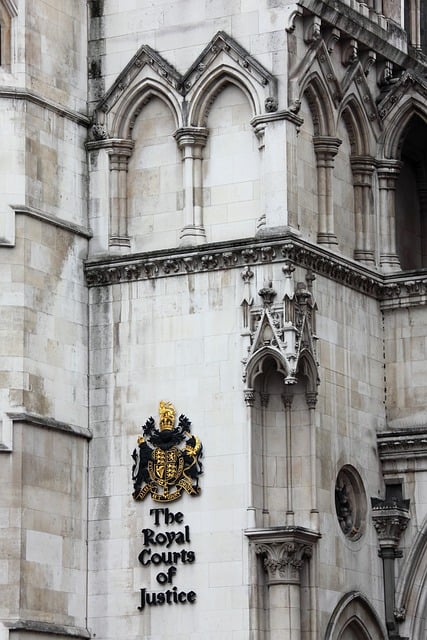Oregon's Probate Court oversees complex matters related to wills, estates, and asset distribution after a person's death. Understanding the state's probate proceedings is crucial for families navigating this emotional process, ensuring legal requirements are met and providing closure. Key steps include filing a petition, validating the will, gathering assets, notifying heirs, and distributing property according to the will or inheritance laws. Familiarizing oneself with court procedures for probate in Oregon empowers families to prepare effectively, participate actively, and ensure the deceased's wishes are respected.
- What is Oregon Probate Court and When is it Necessary?
- Understanding the Oregon Probate Proceedings Process
- How to File a Petition in Oregon Probate Court
- Navigating the Evidence and Hearing Process
- Post-Probate: Distributing Assets and Closing the Estate
What is Oregon Probate Court and When is it Necessary?

In Oregon, the Probate Court is a specialized court that oversees matters related to wills, estates, and the administration of deceased individuals’ property. It plays a crucial role in ensuring that estate matters are handled efficiently and fairly. Oregon probate proceedings are initiated when an individual passes away, leaving behind assets that require distribution or management according to their will or state laws.
When someone’s affairs become complex due to significant assets, real estate, or business interests, or if there are disputes among family members regarding the will’s validity or inheritance, it becomes necessary to file a probate case in Oregon. Understanding the court procedures for probate in Oregon is essential for families navigating this often emotional and intricate process. This ensures that all legal requirements are met, providing closure and peace of mind during what can be a challenging time.
Understanding the Oregon Probate Proceedings Process

Understanding the Oregon Probate Proceedings Process
In Oregon, probate is a legal process that facilitates the distribution of a deceased person’s assets according to their will or, if there is no will, state laws. The probate court in Oregon plays a pivotal role in overseeing this process, ensuring fairness and order. It begins with a probate filing, where a designated executor (or personal representative) presents relevant documents to the court, including the will, death certificate, and inventory of assets. This triggers the official Oregon estate court process.
The court procedures in probate Oregon involve several key steps: appointment of the executor, validation of the will, gathering and valuation of assets, notification to potential heirs, and eventual distribution of the estate per the will’s provisions or state inheritance laws. Each step is crucial for maintaining the integrity of the decedent’s wishes and for ensuring all legal obligations are met during what can be a challenging time for families.
How to File a Petition in Oregon Probate Court

In Oregon, initiating probate proceedings begins with filing a Petition in the appropriate Probate Court. This petition is a legal document that outlines the request to administer the decedent’s (person who has passed away) estate. It should include essential information such as the name and address of the petitioner, details about the decedent, and a list of assets and liabilities. When preparing this document, it’s crucial to understand Oregon probate court procedures to ensure accuracy and completeness.
The filing process involves submitting the petition along with any required supporting documents to the Probate Court clerk. This may include original wills, letters of administration, and other relevant paperwork. Once filed, the court will review the petition and determine if it meets all legal requirements. Understanding the court probate process in Oregon is essential for families navigating this often complex and emotional time, ensuring that all procedures are followed correctly from the outset.
Navigating the Evidence and Hearing Process

Navigating the evidence and hearing process in Oregon probate court can seem daunting for families going through a difficult time. However, understanding the key steps is essential to ensure a smooth process. During probate proceedings, the court will review all documents related to the estate filing in Oregon, including wills, trusts, and financial statements. This involves gathering and presenting evidence to support the validity of these documents and the distribution of assets as outlined by the testator’s wishes.
At the heart of the Oregon estate court process is a thorough examination during hearings where all interested parties can voice their concerns or objections. These hearings provide an opportunity for family members, beneficiaries, and creditors to participate actively. By understanding court procedures probate Oregon, families can better prepare for these interactions, ensuring that their voices are heard while adhering to legal requirements in the complex landscape of Oregon probate court.
Post-Probate: Distributing Assets and Closing the Estate

After the final decision is reached during an Oregon probate court proceeding, the next crucial phase involves distributing the assets according to the will or trust and closing the estate. This process ensures that the deceased’s wishes are fulfilled and their affairs are finalized legally. The court oversees this post-probate phase to safeguard the interests of all involved parties.
In Oregon, asset distribution begins with identifying and valuing all assets within the estate, including real property, personal possessions, investments, and bank accounts. Once identified, these assets are distributed based on the terms outlined in the will or trust. This may involve transferring titles, opening inheritance accounts, or issuing checks to beneficiaries. Upon completion of asset distribution, the executor or trustee is responsible for filing a final accounting report with the court, detailing all financial transactions related to the estate. This report ensures transparency and accountability throughout the probate process.
